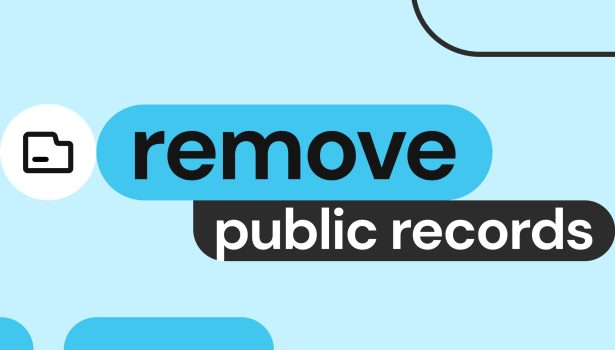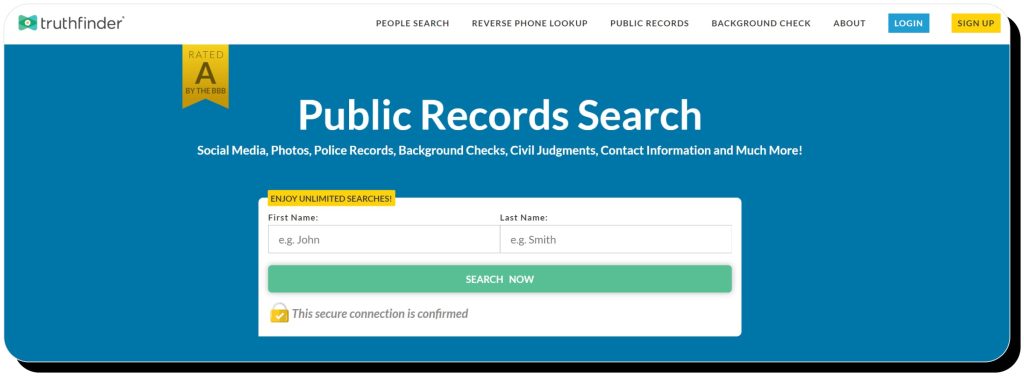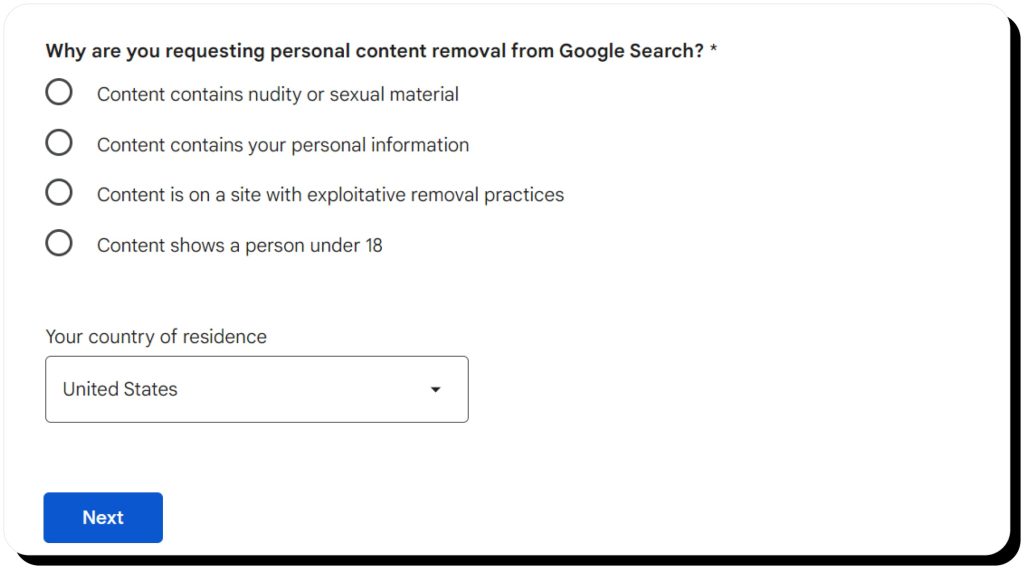How to remove public records from the Internet: an actionable guide
 Erin Kapczynski
SVP, B2B Marketing at Onerep
Erin Kapczynski
SVP, B2B Marketing at Onerep

What are public records?
At the most general level, public records are any type of information or document recorded and maintained by a government agency that is openly accessible to the public. They include documents about individuals, organizations, and government actions and store a wide range of data from births and marriages to lawsuits and bankruptcies.
Now that more courts and agencies are releasing official records on websites, it’s much easier for you to access any document about yourself. However, it’s much easier for others to access that record about you as well, often regardless of their relationship with you. That is because the Freedom of Information Act makes public records available to anyone who requests them.
Types of public records
While each state has its own regulations on what record is considered public, the most commonly encountered types include but are not limited to:
- Birth and death certificates
- Marriage and divorce certificates
- Property tax assessor files
- Mortgages
- DMV files
- Voter registration data
- Court files
- Arrest and criminal history
- Bankruptcy filings, liens, and judgments
- Professional licenses
- Business files (e.g. articles of incorporation and meeting minutes)
It should be noted that if a document contains information about national defense policies, trade secrets, internal private organization policies, or sensitive medical files, it isn’t considered public and is not easily accessible. However, that is done more to protect national and business interests rather than the average person.
How public records appear online
In the past, public records existed only physically in government archives, and one had to visit a courthouse or government office and file a formal request to get a copy.
Today, these documents are mostly stored and accessed online simply because government institutions and courts digitize their files and save them on the web. Depending on the jurisdiction, you can often locate records on a government website for free or for a small fee.
Also, different non-government websites gather information from public documents and publish it online. In particular, data brokers, also known as people-search sites, collect information from publicly available records, combine it with details gathered from social media sites and various online services, and put it all together into individual profiles. Then they publish these profiles online for anyone to access – often completely for free.

Why you should consider removing your public records from the Internet
Public records are important documents for citizens and everyone’s access to them ensures the free flow of information. However, data found in them covers numerous areas of your life and contains all sorts of private details. Most documents contain personally identifiable information (PII): your legal name, date of birth, home address, phone numbers, Social Security number, family ties, employment and education background, and other private details. Having these details publicly accessible leads to numerous threats, including:
- Identity theft and impersonation: Your full legal name, address, and date of birth are enough information for a cybercriminal to steal your identity. Then, by leveraging it with the most common security question details such as your hometown, first school, or mother’s maiden name, bad actors can access your financial and medical accounts or get various benefits and even commit crimes in your name.
- Reputation damage: Numerous public record documents contain highly sensitive information that you might not want others to know. Be it liens, bankruptcy, a criminal record, or allegations made against you during a court proceeding – some details can cost you a job, a credit, or a relationship.
- Doxxing: Short from “dropping documents”, doxxing involves sharing someone’s sensitive information online for others to harass, shame, or intimidate the victim.
- Stalking and harassment: Armed with your home address, phone number, and place of work, ill-wishers can stalk you both online and in person.
- Scam targeting: While your credit range, job title, and net worth help fraudsters evaluate whether you are worth targeting with scams, details like your workplace, family ties, and bank information help them craft attacks that are more likely to fool you.
- Increased spam: Marketers use public record databases to identify individuals with specific needs and bombard them with personalized offers. While this might sound like a minor inconvenience compared to the above-mentioned threats, spam still might cause major annoyance and discomfort.
How to remove public records from the Internet?
It’s important to understand that you can’t remove all public records about you. After all, files about arrests, bankruptcy, judgments, liens, lawsuits, and foreclosures are public for a reason — they help ensure transparency and accountability. However, while you can’t always delete or seal public documents from official agencies, you can greatly decrease the amount of private info that is available to the general public and protect yourself from the numerous threats described above.
Step 1: Go to your county clerk’s office
Once you remove your personal information from original public records, it will be easier to remove it from the Internet. Go to your local county clerk’s office and request the documents they have about you as well as the ones stored in the Uniform Commercial Code (UCC) database. The UCC database lists information on property ownership and financing statements. The County Clerk keeps marriage licenses, birth certificates, deeds and mortgages, federal tax liens, building and loan agreements, and numerous other docs.
Request what information can be removed, redacted, modified, or hidden from public access. Whenever possible, hide at least your full name (you can put initials instead), address (use a P.O. Box), phone number, email address, Social Security number, and banking information. Make sure that changes are made both in physical documents and those stored online. You might have to contact government websites yourself afterward and request to update their databases as well.
Step 2: Go to your DMV
The Division of Motor Vehicles keeps numerous driving records including your driver’s license, vehicle registration, ownership history, and accident reports. Like in the county clerk’s office, request what information can be removed, redacted, or modified. At the very least, ask how to hide address from public access and replace it with a P.O. Box.
Step 3: Remove your court records
Depending on your state, you may be able to clear criminal records via expungement, which essentially “deletes” arrests and criminal convictions from public court documents. Another option is “sealing,” which doesn’t completely remove the record but hides it from public view. To see what option works better for you and whether you meet the requirements for either, consult with a legal team first. Then gather all the necessary documents and petition the court where you were convicted.
Step 4: Remove yourself from data broker sites
By collecting your personal information from various public records and combining it in a singular “background check” report, data broker AKA people-search sites make it very easy to learn everything about who you are. Be it a stalker looking for your current address, identity thieves targeting a specific social group, a hate group seeking out people with opposite beliefs, or a potential employer evaluating your background – anyone can access this report, often for free.
The good news is that you can request to remove personal information from people-search websites. The bad news is that there are hundreds of them and each has its own opt-out requirements. Removing your profiles manually requires finding them on each website, filling out and submitting an opt-out form, verifying your identity (by phone or email), rechecking later to confirm your profile was actually removed, and repeating the removal request in case it’s not honored initially. Evidently, this is a tiring process that takes an extremely long time.
Onerep can take the burden off your shoulders by automating the removal process from 231 people-search websites. We scan Whitepages, Spokeo, Truthfinder, Intelius, and over 190+ similar sites for your information and erase it from every single one. Then we run scheduled privacy scans every month and get rid of any newly appeared or relisted information.
Step 5: Remove public record information from third-party sites
Search the web for social media posts, personal websites and blogs, charities, news outlets, marketing databases, and any other platforms that share your public records, extracts from them, or even just some bits of your personal info. If they don’t have an opt-out page, contact the website owner or the author of the post directly and request to have it removed.
Step 6: Remove public records from Google
If you haven’t been able to remove a web page with your personal information from a website, you can try removing it from Google search results. Google allows you to remove any page containing PII including your address, contact details, ID numbers, or medical records. The best option here is to use the personal content removal form where you can submit the URLs directly. You can also use the “Results about you” tool which finds web pages containing your PII to make sure you haven’t missed any.
If you’ve removed or modified a website page but the old content still shows up in Google, use the Refresh Outdated Content tool.

Step 7: Suppress the remaining links with other content in the search results
If eventually some links with your public record information still show up in Google, you can try suppressing them. This means creating positive content that will “bury” the undesired pages by ranking higher in the web results. The content may vary from opinion articles to business and social media profiles – anything that benefits your online reputation. However, remember not to reveal any personal details while creating those as the ultimate goal is to hide them.
Quick tips to minimize the visibility of your public records
In addition to learning how to remove yourself from public records online, you can prevent exposure and reduce the amount of new documents created by taking the following proactive measures:
- Mask your address with a P.O. Box: Taking control of your privacy starts with knowing how to hide your address from public records, which primarily can be done in two ways. One is renting a P.O. Box from your local post office and using it instead of your real address for important documents. In some states, it’s even legal to use a P.O. Box as your address on a driver’s license.
- Transfer property to an LLC: Another option works if you own property and can move it over to an LLC, incorporation, or limited partnership. Then, address the mail to that business entity.
- Pay bills online: To keep mail with sensitive information from being sent to you, you can pay bills digitally and request digital receipts.
- Mask your phone number: You can keep your real phone number private by getting a new phone line and giving it out to services and general acquaintances.
- Opt for confidential documents when possible: This varies state by state, but sometimes you’re allowed to have a confidential public record. For example, California offers confidential marriage licenses.
- Improve your online privacy: Take control of your online presence: adjust privacy settings on social media so that only people you know can view your posts, tighten security settings on important online accounts, use dummy details if possible when creating new ones, use virtual credit cards to shop online without sharing your financial info, and always keep an eye on your digital footprint
FAQs
How long does it take to remove public records online?
The time it takes to remove a public record depends on the platform it’s published on and its nature: some aren’t eligible for removal by law which varies among states and online platforms have their own removal policies. People-search websites take from hours to weeks to take down your profiles, Google removes the links containing your private information within a few days. Government agencies usually respond longer, especially if the process involves waiting periods (such as expungement).
Can arrest records be completely erased from the internet?
In most cases, you can’t completely erase arrest records from the Internet. While some jurisdictions allow for the expungement or sealing of certain offenses under specific conditions, this does not necessarily remove all traces of them from the Internet. However, you can request removal of court files from a wide range of platforms that publish them online, e.g. people-search websites or government databases. This will greatly limit who and how easily can access your arrest history.
How do you expunge a felony from your record?
The expungement process varies by state and the procedures depend on the jurisdiction. To expunge a felony, you should first determine its eligibility (check the laws for a particular type of felony and convictions), obtain all relevant documents, and then file a petition with the appropriate court. You may be required to present your case before a judge. Consider consulting with an attorney who specializes in criminal law in the relevant jurisdiction to get guidance throughout the process.
How to hide your address from public records?
The first thing to do is to get yourself a P.O. Box which you will use instead of your home address. Then, go to your county clerk’s and local DMV’s offices and request the documents that contain your address. Ask where it can be removed, redacted, or changed to the P.O. Box. After that, remove your address from people-search broker websites, Google, and any online databases and sites that publish it. If a service or platform requires your mailing address, use the P.O. Box.
 Erin Kapczynski
SVP, B2B Marketing at Onerep
Erin Kapczynski
SVP, B2B Marketing at Onerep



